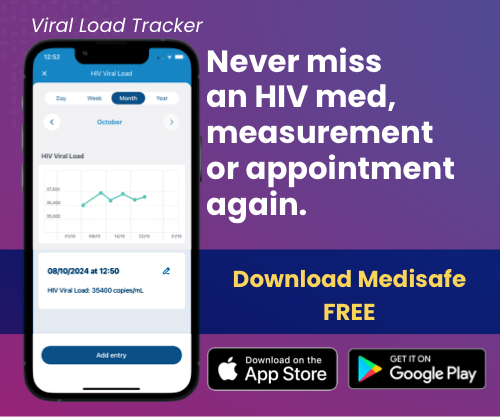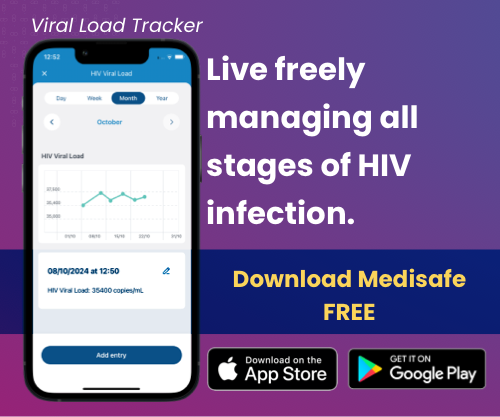If you or a loved one has recently been diagnosed with HIV, you may have many questions about the symptoms, especially about weight loss. Unexplained weight loss can be alarming, and understanding when and why it happens is important. In this blog post, we’ll look at how soon weight loss might occur after an HIV infection, what causes it, and how to manage this symptom effectively.

Understanding HIV Weight Loss
Weight loss in people living with HIV can happen at different stages of the infection, depending on the individual and how the virus progresses. In the past, weight loss—particularly severe, unintended weight loss—was more common due to limited treatment options. Today, antiretroviral therapy (ART) has made it possible for many people with HIV to live healthy lives with minimal weight-related symptoms, especially when treatment starts early.
However, weight loss can still be one of the early signs of HIV and can also occur later if the virus is not well-managed.
Early Stage HIV and Weight Loss
In the early stage of HIV, known as acute HIV infection or primary HIV infection, symptoms can appear within 2-4 weeks of exposure to the virus. These early symptoms, sometimes called a “seroconversion illness,” can resemble the flu and include fever, sore throat, swollen glands, and fatigue. During this period, some people may experience mild, temporary weight loss due to their body’s initial response to the virus. However, significant weight loss is not typical at this stage.
The body’s immune system is trying to fight off the virus, which may cause a spike in energy usage. While weight loss may occur, it is usually not extreme in the early stages, and many people might not notice it. Most of the time, once the acute symptoms pass, weight stabilizes until the later stages unless other factors like infections or poor nutrition come into play.
While the timeline for weight loss varies widely among individuals, many people may start noticing changes within the several weeks to a few months post-diagnosis. Studies show that approximately 10% of individuals may experience unintentional weight loss as the virus progresses—often before they even begin antiretroviral therapy (ART).
It’s essential to recognize that not everyone diagnosed with HIV will experience significant weight loss. Many factors, including pre-existing health conditions, nutritional status, and the timing of ART initiation, can influence this outcome.
If you or a loved one is experiencing weight loss soon after an HIV diagnosis, it’s crucial to seek medical advice as early as possible. Engaging with healthcare professionals can lead to early interventions, including nutritional counseling and appropriate medical treatments. Timely management can help mitigate further weight loss and improve overall health.
Chronic HIV and Weight Loss
As HIV progresses into the chronic stage, which can last for years, weight loss may become more noticeable. During this period, people may start to lose weight if the virus isn’t well controlled or if they are not on effective antiretroviral therapy (ART). This stage is often characterized by a slower decline in immune function, and without treatment, the virus continues to damage CD4 cells, which are crucial for a healthy immune system.
Weight loss at this point can be caused by several factors:
- Increased energy expenditure: The body is working harder to fight the virus, which means it burns more calories even at rest.
- Malabsorption: HIV can damage the digestive system, making it harder for the body to absorb nutrients from food.
- Opportunistic infections: These are infections that take advantage of the weakened immune system, particularly affecting the gastrointestinal system and causing symptoms like diarrhea, which further contributes to weight loss.
If a person is not on ART or if the virus is not being effectively managed, weight loss can become more rapid, especially as the immune system weakens.
HIV-Associated Wasting Syndrome
In some cases, weight loss can progress to a condition called HIV-associated wasting syndrome. This condition is defined by unintentional weight loss of more than 10% of body weight along with symptoms such as diarrhea or chronic weakness. Wasting syndrome was more common before modern ART, but it can still occur, particularly in people whose HIV is not being well controlled.
Wasting syndrome is serious and can happen within months or years of an HIV diagnosis, depending on how soon treatment begins. It’s important to recognize early signs of weight loss and discuss them with a healthcare provider to prevent the progression to this stage.
How to Manage HIV-Related Weight Loss
Starting ART as early as possible is key to preventing weight loss and managing HIV effectively. Antiretroviral therapy helps control the virus, preventing further damage to the immune system and stabilizing body weight. For people already experiencing weight loss, sticking to their ART regimen is the most important step in halting it.
In addition to ART, addressing nutritional needs is essential. Eating a balanced diet that is high in calories and rich in nutrients can help maintain or regain weight. A healthcare provider might suggest working with a nutritionist to create a meal plan tailored to specific needs. Nutritional supplements or high-calorie shakes may also be recommended.
 For those experiencing muscle loss, exercise—especially strength training—can help build back muscle mass and improve overall strength. Additionally, managing mental health through therapy or support groups can help with emotional well-being, which plays a crucial role in physical health.
For those experiencing muscle loss, exercise—especially strength training—can help build back muscle mass and improve overall strength. Additionally, managing mental health through therapy or support groups can help with emotional well-being, which plays a crucial role in physical health.
Weight loss in HIV can happen at various stages, from the early acute infection stage to more advanced stages if the virus is not well-controlled. However, with early and effective treatment through antiretroviral therapy (ART), many people can prevent significant weight loss and live healthy, fulfilling lives. If you or a loved one experiences weight loss after an HIV diagnosis, it’s important to talk to a healthcare provider about steps you can take to manage this symptom.
Other Mechanisms Behind Weight Loss
- Increased Metabolic Rate: When the body is infected with HIV, it must work harder to fight the virus. This increased metabolic activity can result in more calories being burned than usual, leading to gradual weight loss.
- Opportunistic Infections: As HIV progresses, it weakens the immune system, making the individual more susceptible to opportunistic infections. These infections can cause symptoms such as diarrhea, nausea, and loss of appetite—further complicating nutritional intake. Individuals may experience these issues just weeks after their initial diagnosis, exacerbating weight loss.
- Gastrointestinal Complications: HIV can directly or indirectly impact the digestive system. Difficulties with nutrient absorption and chronic diarrhea may begin early in the course of the illness, leading to nutritional deficiencies and weight loss.
Sources and Links
Mary West. (2021). HIV wasting syndrome: Symptoms, causes, and more. Medical News Today. https://www.medicalnewstoday.com/articles/hiv-wasting-syndrome
Leilani Fraley, RN, MSN. (2021). Why HIV Weight Loss Happens and What to Do About It. Healthline Media. https://www.healthline.com/health/hiv-aids/hiv-weight-loss
WebMD Editorial Contributors. (2024). AIDS Wasting Syndrome. WebMD. https://www.webmd.com/hiv-aids/aids-wasting-syndrome



